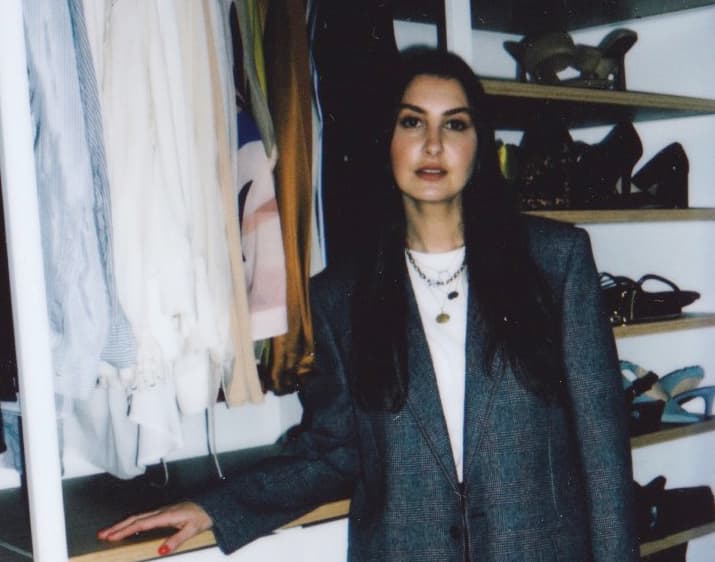- By nearly every measure, Americans are financially strained. Yet we’re bombarded by messages to “buy more and more and more,” personal stylist Allison Bornstein says.
- On the heels of her viral three-word method and wrong shoe theory, Bornstein has a radical, new idea: “Just because you have the money doesn’t mean you have to spend it.”
- Heading into the holidays, here’s how to avoid the temptation to overspend.
Allison Bornstein, author of “Wear It Well”.
Photo: Jennifer Trahan
It’s not often we’re told to buy less, at least on social media.
More likely, we’re encouraged to wear Loro Piana cashmere baseball hats and carry $300 Smythson notebooks like Gwyneth Paltrow in the name of “quiet luxury” and justify such expensive purchases using “girl math.”
That’s in addition to the current “treat” culture trend, which promotes spending money on smaller splurges such as at Starbucks as a form of self-care.
“We don’t need half of these things,” said Allison Bornstein, a celebrity stylist and author of the new book “Wear It Well: Reclaim Your Closet and Rediscover the Joy of Getting Dressed.”
“Take a second to pause,” she said.
Actress Gwyneth Paltrow exits a courtroom in which she is accused in a lawsuit of crashing into Terry Sanderson during a 2016 family ski vacation, Park City, Utah, March 21, 2023.
Rick Bowmer | Afp | Getty Images
By nearly every measure, Americans are financially strained. And yet, we’re bombarded by messages to “buy more and more and more,” Bornstein said.
Bornstein, who has been a style consultant for more than 13 years, encourages her clients to work with what they already own. “It’s just easier to buy something new, but you can use what you have,” she said.
“You can be more creative and more interesting and so much more economical.”
More from Personal Finance:
Quiet luxury may be Americans’ most expensive trend to date
Shoppers embrace ‘girl math’ to justify luxury purchases
Paying in cash helps shoppers ‘forget’ guilty pleasures
While some things may be worth the splurge, such as a good coat or expert tailoring, “just because you have the money doesn’t mean you have to spend it,” Bornstein writes in “Wear It Well.”
With her viral three-word method for defining a personal style and wrong shoe theory to shake up the usual combinations, there’s a reason her ideas are resonating, and some of it is due to spending fatigue. “People are tired and left with a pile full of stuff we’ve been told to buy and don’t know what to do with,” she said.
Allison Bornstein’s book: “Wear It Well”.
Courtesy: Allison Bornstein
Quiet the noise altogether, cautions consumer-savings expert Andrea Woroch. “The most simple way to dodge temptations is to get off the list by unsubscribing from emails, opting out of text alerts, turning off push notifications in retail apps and unfollowing brands on social,” she said.
In addition, deleting payment details stored online helps create a “purchase hurdle” that forces you to think through your buying decisions, Woroch said.
Otherwise, sleep on it, both Woroch and Bornstein advise. Bornstein recommends adding an item to a wish list before committing to a purchase, and resisting the urge to buy something just because it is on sale.
“If you didn’t want something when it was full price, you probably don’t want it discounted,” Bornstein writes in her book. “Think of a sale as a bonus,” she said. “When the item you already know that you want is on sale, it’s that much sweeter.”

Jessica Roberts is a seasoned business writer who deciphers the intricacies of the corporate world. With a focus on finance and entrepreneurship, she provides readers with valuable insights into market trends, startup innovations, and economic developments.








